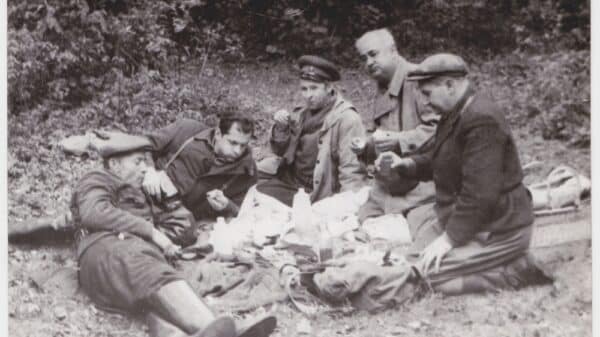Presently, we grasp that Russia is vast, it holds the title of the largest country on Earth, but it’s still challenging to fully comprehend its immense magnitude. To exemplify this notion, we have crafted an analogy that might aid in visualizing the sheer scale of the nation.
In simple terms, Russia is nearly as extensive as an entire planet. It spans 17 million square kilometers, whereas the planet Pluto covers 16.6 million square kilometers. Yes, they are essentially of comparable size. Attempt to fathom that…
Females Abound
Throughout the previous century, there have been a surplus of women residing in Russia compared to men, notably more. As evidenced by a countrywide survey in 2018, there are 10.5 million more women inhabiting Russia than men. This equates to women constituting 54% of the population, in contrast to the 46% that men occupy.
What brought about this situation? While an approximately equal number of boys and girls are born annually, women tend to outlive men by a significant margin. Men, once past the age of 30, begin to succumb to various reasons including warfare, vehicular accidents, industrial mishaps, and more. Consequently, this has resulted in a greater number of elderly women than men.
Russian Nesting Dolls
These interconnected dolls have evolved into a symbol of Russia, and a vast majority of tourists exploring the nation depart without acquiring one, yet their inception harbors a strong tie to Japan. The inception of the doll can be attributed to Sergey Malyutin, a skilled painter who sought to fashion a Russian doll capable of enduring through the generations.
A prevailing belief holds that his inspiration stemmed from the Japanese Daruma doll, with a pivotal realization that it harbored a nested design, inspiring Malyutin to conceive the first Matryoshka doll in 1890.
Passionate About Fishing
Given the abundance of rivers, lakes, and seas across Russia, it comes as no surprise that Russians are deeply passionate about fishing, with fish constituting a significant aspect of their diet. Every angler believes in their specific methods, but Russians excel in ice fishing. When temperatures plummet below freezing, and the lakes freeze over, they eagerly commence their activities.
Their approach involves incising a hole into the ice utilizing an ice saw, or less conventionally, an auger or chisel. They utilize lures like fatheads, wax worms, and crappies. Fishing is often viewed as a pursuit associated with masculinity in many regions, yet in Russia, women exhibit an equal fervor for engaging in fishing activities, if not more. Therefore, witnessing women on the ice should not evoke surprise.
The Enigma of the Amber Room
At a point in time, one of the most exorbitant and exquisite rooms worldwide was housed within the Catherine Palace of Tsarskoye Selo near Saint Petersburg. Named the Amber Room, this chamber boasted captivating amber panels embellished with mirrors and gold leaf.
During the invasion of Russia by the Nazis in World War II, they dismantled the Amber Room and translocated its components to the German city of Königsberg. Since then, the prevailing whereabouts of the room remain shrouded in mystery, leaving the fate of these priceless artifacts unresolved.
Subbotnik Tradition
The Trashtag challenge unites individuals to engage in cleaning initiatives, a commendable effort that garners widespread support. Observing people raising their heads from gadgets to productively contribute is heartening, yet the Russians have been undertaking a comparable practice for over a century, devoid of requiring a catchy hashtag.
Annually, on a designated day known as Subbotnik, denizens from every city congregate to collectively undertake communal cleanup endeavors. They address litter issues, undertake repairs, and emphasize recycling. This tradition originated shortly after the Russian Revolution and persists till date.
Rampant Deception
In the United States, dashboard cameras primarily serve as tools for law enforcement, with their footage typically presented in courts or televised on “Cops.” In contrast, nearly every vehicle traversing Russian roads is equipped with a personal dashcam, with the recordings emerging as an Internet sensation.
Within a vast nation where law enforcement is often tainted by corruption, these dashcams safeguard ordinary citizens against insurance deceit, wherein individuals stage faux car collisions to illicitly profit from insurance payouts.
Becoming Family
Should you find yourself single while journeying through Russia and encounter a special someone, it’s imperative to realize that you aren’t merely gaining a partner, but a whole new family. Russian families foster exceptionally close bonds, hence if you’ve been chosen by one of them, anticipate a warm embrace into their midst.
Traditionally, Russians exhibit unwavering support for their loved ones, and are willing to go to great lengths for them. Therefore, when the time comes to meet the parents, be prepared to be swiftly embraced as part of the family and treated akin to their offspring.
Russia’s Extensive Pipeline Network
Russia not only boasts vast territory but also possesses extensive natural resources. It stands as one of the largest players in the petroleum industry globally, showcasing colossal reserves. Additionally, it serves as a premier exporter of natural gas and harbors the world’s second-largest coal reserves. Given the plethora of gases at their disposal, Russia has erected an intricate web of pipelines. These pipelines collectively span a staggering 259,913 kilometers, forming a network of such magnitude that traversing through them equates to circumnavigating the Earth approximately six and a half times.
A Cherished Tradition
Chess has held an enduring place in the hearts of Russians for centuries. Historical anecdotes even suggest that Czar Ivan IV drew his last breath in 1854 amidst a chess game. Upon the ascent of the Bolsheviks to power in 1917, the game’s popularity witnessed a surge, eventually becoming Russia’s favored recreational pursuit.
Russians harbor a deep affection for chess as they perceive it as a reflection of their core values. It transcends being a game of chance, necessitating skill and a meticulously crafted strategy. Moscow played host to the state’s inaugural national chess tournament in 1921, subsequently solidifying its status as a beloved pastime amongst Russians.
The Enigmatic Closed Cities of Russia
Within Russia are cities that lay beyond the reach of ordinary visitors. Rumors suggest that around 42 cities within Russia have been classified as covert entities by the government. Allegedly, only a select few within the nation possess knowledge of the identities and locations of these concealed urban locales.
These clandestine cities remain notably absent from maps, warranting visitors to refrain from attempting visits as such actions contravene the law. These sites primarily specialize in metallurgical, military, and chemical activities, operating under the designation ZATO, signifying closed administrative-territorial entities. While these locales evoke intrigue, their inclusion in one’s travel itinerary proves futile.
The Shamanic Sanctuary
Although Shamanism has witnessed a decline in many regions globally, a solitary island within Siberia persists as a bastion preserving the ancient tradition. Olkhon Island stands as an enclave that cherishes its Shamanic religious heritage, rendering it a distinctive and captivating destination. It ranks as the third-largest lake island globally, characterized by verdant woodlands and modest precipitation levels. Despite its limited populace, the island has captivated tourists due to its natural allure and cultural richness.
In Russia, plunging into icy waters during freezing winter temperatures holds commonplace, with some individuals embracing this practice routinely for its perceived health benefits. This bold tradition has affectionately dubbed participants as “walruses.”
In Russian culture, presenting flowers in even numbers conveys associations with funerals, hence floral gifts typically feature an odd number of flowers to signify romantic intent. Deviation from this custom may elicit unintended offense and potentially jeopardize romantic encounters.
The iconic Hermitage Museum in Russia harbors approximately 70 feline inhabitants, serving as guardian cats safeguarding the priceless artworks from potential rodent incursions. Tracing back to the 1700s, Empress Elizabeth proposed this innovative concept to shield the museum’s exhibits from insidious rodent threats.






























